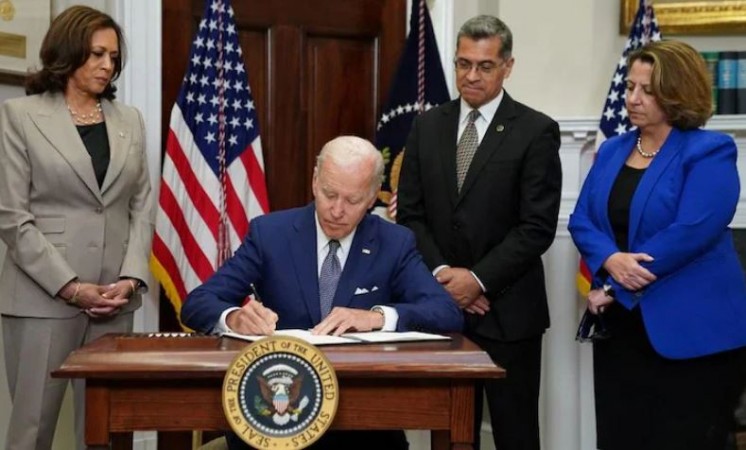
US President Joe Biden signed into Democratic bill the Inflation Reduction Act, a scaled-down version of the massive "Build Back Better" package he and many Democrats envisioned in 2021.
Biden hailed it as a "historic bill" and claimed it would lower expenses for American households, address the climate crisis, reduce the deficit, and finally require the biggest businesses to pay their fair share of taxes, according to news reports.
The plan includes provisions to lower the cost of prescribed drugs, an investment of over $400 billion in the battle against climate change, and a minimum tax of 15% on the majority of businesses with annual revenues over $1 billion. Over a ten-year period, the law would produce nearly $300 billion in net revenues.
Democrats utilised a streamlined legislative procedure called reconciliation to approve the bill without the help of any Senate Republicans. The bill was approved earlier this month by the equally divided Senate with a vote of 51 to 50.
Along party lines, the House passed the bill on Friday by a vote of 220 to 207.
Prior to the midterm elections, Democrats were eager to pass their domestic policy priorities, but Republicans vehemently opposed the proposal, claiming that tax increases would burden US businesses and employees and harm the economy.
The Tax Foundation, a nonprofit research tank, recently argued that by limiting the economy's ability to produce, this plan may actually aggravate inflation by slowing long-term economic growth.
Joe Biden calls India, U.S 'indispensable partners'
US Appeal court sides with House in fight over Donald Trump tax returns
Biden struggles with coughing throughout bill-signing remarks on White House lawn